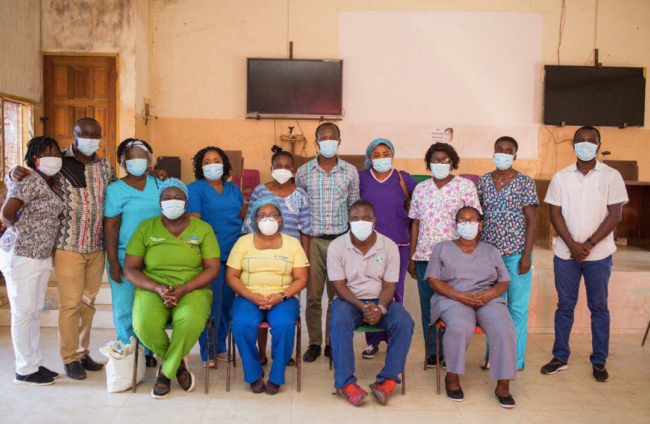Investing in the lives of host communities by contemporary corporate entities is becoming the mainstay for addressing some basic but critical needs of communities.
Corporate support from such entities as part of their social performance strategies has over the years brought great relief to communities.
It enabled them to access general/specialised healthcare, educational scholarships and infrastructure. Such support helped birthed entrepreneurs and created jobs among others, which improved the livelihood of the beneficiaries.
Touched lives
Since it’s inception in Ghana almost a decade ago, the West African Gas Pipeline Company limited (WAPCo) has, after careful interactions with people in its host communities in the Greater Accra and Western Regions, identified and carried out various interventions that have touched lives.
One of such interventions is the specialised annual medical care service to cater for eye problems in the host communities.
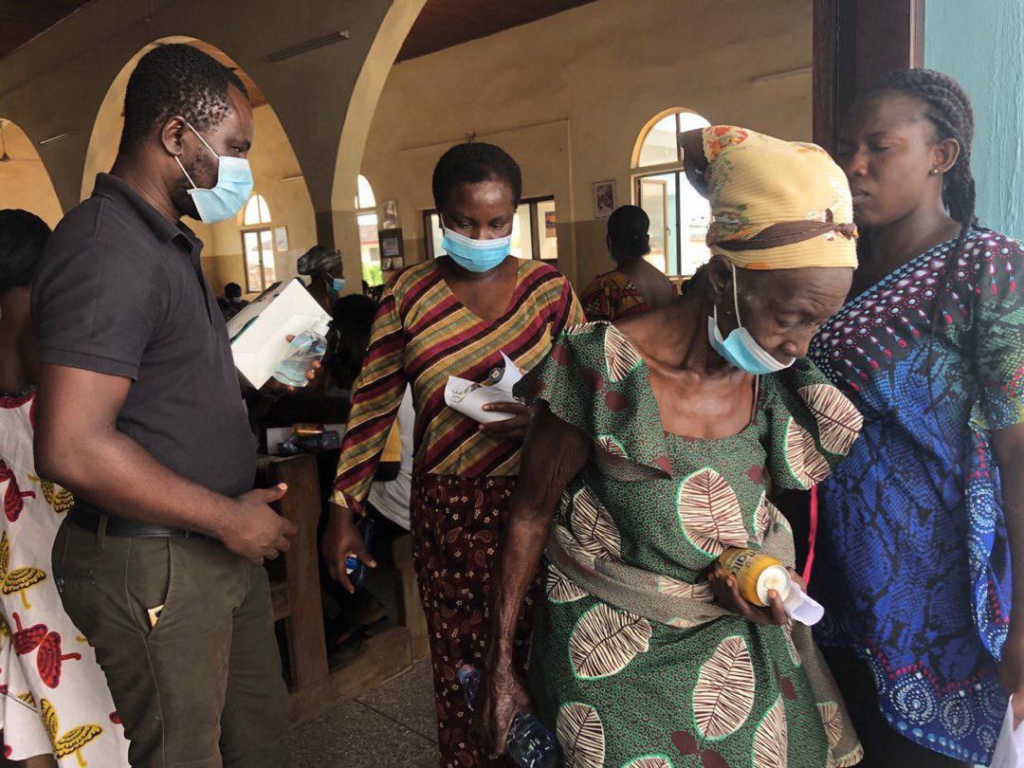
Seven communities - Kpone and Tema Manhean in the Greater Accra Region and Dwomo, Aboazde, Lower Inchaban, Shama and Abuesi in the Western Region – have over the years benefited from free annual eye screening, in collaboration with eye specialists from the Korle-Bu Teaching Hospital.
For more than half a decade, the company’s eye screening programme has helped meet the critical needs of a huge number of members of the host communities with eye problems who have no access to specialist care.
Statistics
A study by the Journal of Environmental and Public Health indicates that an estimated 40 per cent of the country's population has little to no access to eye care. As a result, more than 200,000 individuals in the country are blind. More than half of these cases are due to cataracts, and glaucoma. These conditions are, in many cases, preventable.
The World Health Organization’s (WHO) data indicates that one billion people around the world have preventable vision impairment or one that has yet to be addressed.
The data shows that reduced or absent eyesight could have major and long-lasting effects on all aspects of life, including daily personal activities, social interactions, school and work opportunities and the ability to access public services.
Referrals
At the just ended WAPCo eye screening in the two regions, more than 2,000 beneficiaries received care, with some provided with medicated glasses, eye-drops and other medicines as well as care for other eye conditions.
Those identified by the team with severe conditions were referred to the Tema General Hospital and the Korle Bu Teaching Hospital in Greater Accra and Effia-Nkwanta Regional Hospital in the Western Region.
The Eye Specialist in charge of the outreach programme, Dr. Gladys Fordjour, said some of the cases that came up had the potential to affect the patients’ eyes if not taken seriously.
“We have also seen cases of glaucoma and one unfortunate thing about glaucoma is that when you are blind, nothing can be done about it which has been one of our concerns,” she said.
Regular checkups
The eye screening exercise instituted by WAPCo, Dr. Fordjour said was timely, “as some of the cases that came to us here were quite serious and we referred some to seek additional care at the centres.”
Dr Fordjour said most of these health facilities in the communities did not have specialized eye services thus making WAPCo’s outreach programme very important for regular checkups, for all and especially those above 40-years.
Eye challenges identified she said, were refractive errors, cataract, allergies and cases of glaucoma and that some of the people also have systemic diseases such as diabetes and hypertension which is linked to the eye problem.
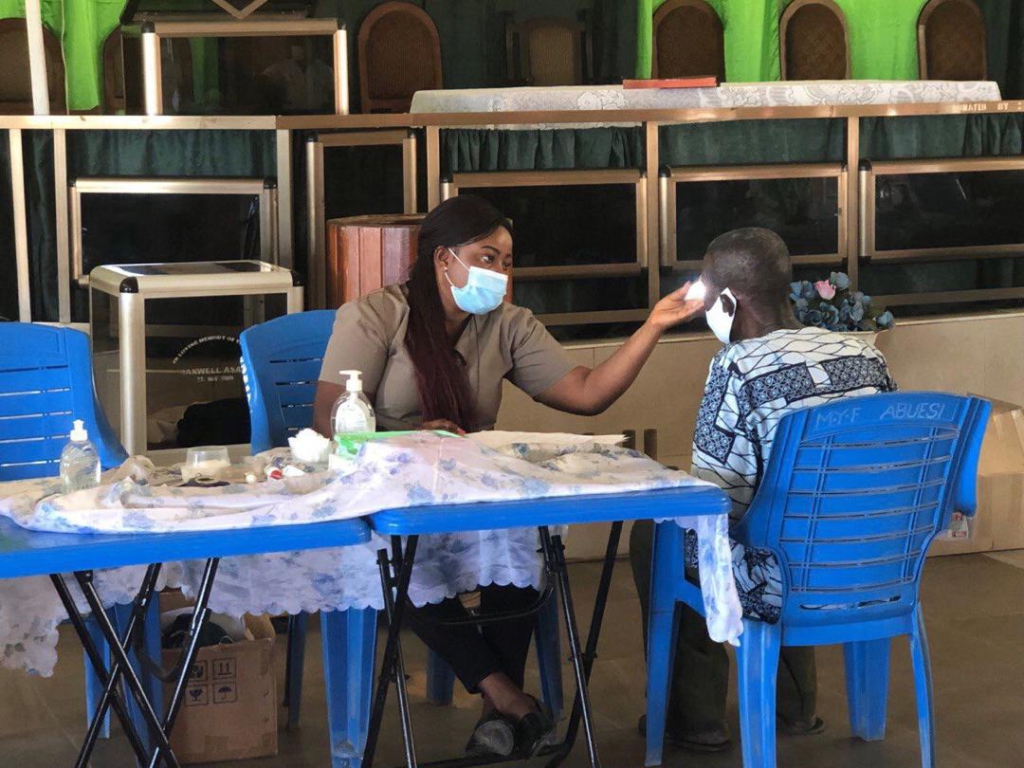
She said the commonest among the cases seen were cataracts, which is not a problem since it causes reversible blindness if those affected could get the surgery done.
Dr. Fordjour said the team examined some children as well and “we also have noticed children cataract tumors and with glaucoma which require attention.”
The regret
She however expressed regret that, after referring to cases of cataract tumor and glaucoma some do not take advice to visit the referral facilities for further attention or have their eye checked regularly.
The External Relations Manager of WAPCo, Mark K. Mensah, said WAPCo identified the medical outreach as a critical intervention, which was agreed upon through consultations with members of the beneficiary communities.
The communities selected have some appreciable health care facilities but lack specialized services such as optometry, even though poor eyesight and related conditions are common.
Emerging cases
Mr. Mensah also expressed concern about the emerging cases of glaucoma even in children, saying “The sad part of glaucoma is that it does not show any symptoms until it's too late, which has resulted in many losing their sight.”
“Therefore realising that there are varied eye problems in our host communities with no specialist services, we agreed with the people, after broad consultations, to provide annual eye care for them and it has helped greatly."
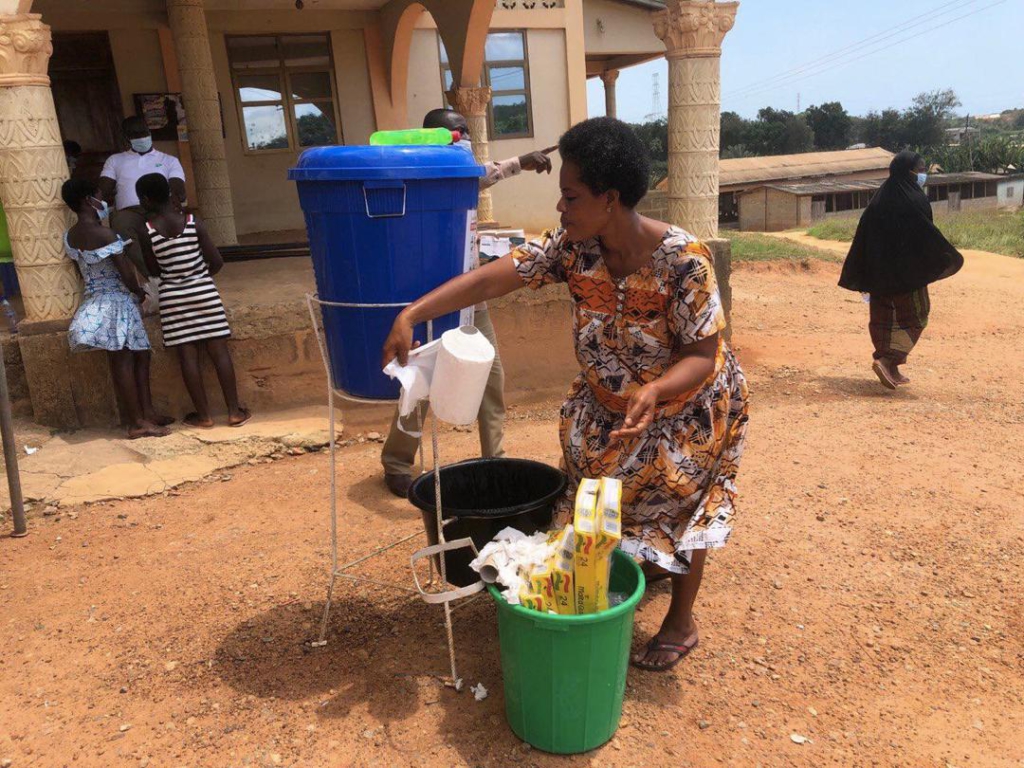
The company, he said, aside from the medical care for host communities in Greater Accra and the Western Regions, has built a Community Centre at Aboadze, and a maternity facility for the Tema Manhean community in Tema, and a teachers' quarters for Kpone as well as instituting a scholarship programme for brilliant but needy children.
Other support for communities
“We have also extended support to students pursuing various programmes in the universities and those who want to go into vocational training, WAPCo designed a scheme called Community Youth Enterprise Scheme (CYES) to support them in that direction, and supported them with tools to start business”, he said.
In these seven coastal communities, the main occupation is agriculture – fishing, fish processing and some commercial activities within the communities in the districts dotted with industrial activities.
Some of the community members say over the years, the eye-care programme by WAPCo has brought the communities care and advice as to how to take care of their eyes.
Exceeding daily target
In Kpone and Tema, the aged were aided to the venue. The medical team had to make provision for additional numbers after they exceeded their daily target.
The same could be said about the first port of call, Aboadze in the Shama District, the numbers were huge. The story of Abuasi was no different.
Many of the residents in Shama, Lower Inchaban and Dwomo said annually they have had support from WAPCo aside from eye-care. They mentioned an entrepreneurship scheme which some of the youth in the community benefited from.
The help
Maame Araba, who processes fish in the community, said annually she avails herself for the screening – “it has helped me because the doctors take their time to explain to me what to do.”
Madam Grace Nketsiah in Shama said she had a problem reading and was unable to identify figures on her phone, however, after going through the process she was given reading glasses.
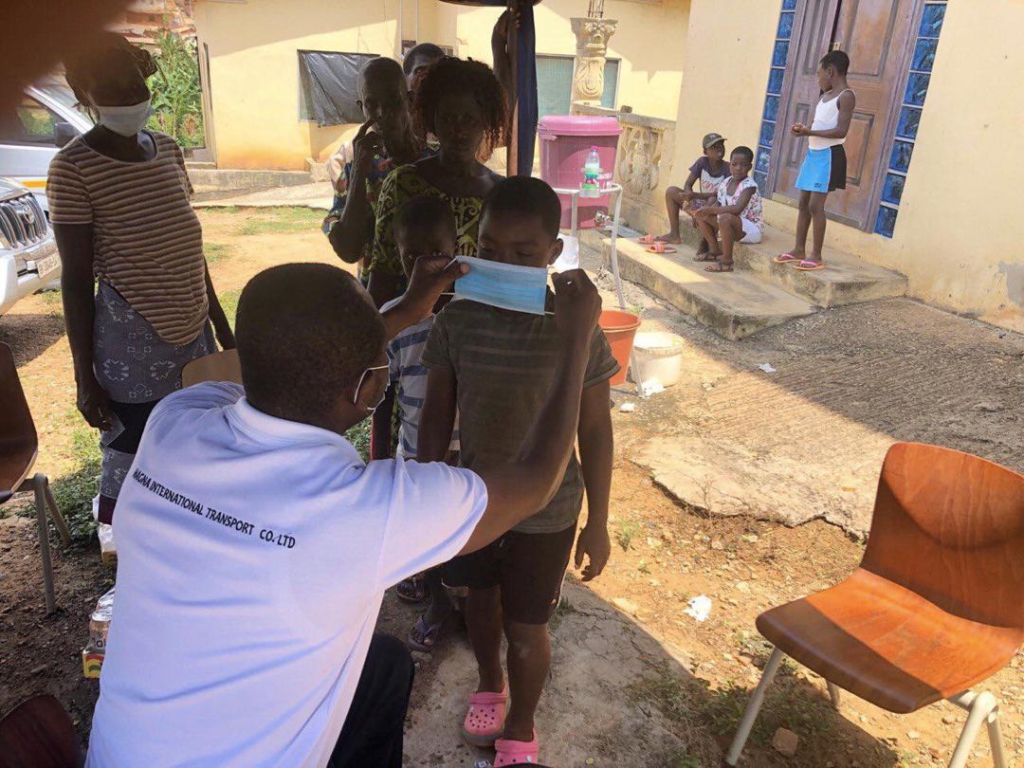
Others say they have received useful advice on how to take care of their eyes and when to visit the doctor to ensure they receive timely eye care.
Mr. William W. Atiapah said the medical outreach was critical owing to the close proximity of the area to industrial activities in Tema, which mostly generate a lot of smoke and dust, coupled with fish processing that also emits smoke from the kiln and the fuel they use.
The request
Some of the beneficiaries who were diagnosed with glaucoma and cataract, which required surgery, said they were happy with the screening.
“However, our biggest challenge has to do with the referral, when we are referred, we don’t have the money for the surgery, therefore, it becomes very difficult for us to get further attention,” one of the beneficiaries said.
The beneficiaries were of the view that some level of attention should be paid to a number of them, especially the very old – “the doctors took our numbers and other details we appeal to them to help us to have the needed surgery.”
Latest Stories
-
You can’t order arrest of drivers for increasing fares – Joyce Bawah to Transport Minister
2 mins -
GWCL to publish list of defaulters as it is overwhelmed by GH¢1.2bn indebtedness
4 mins -
Tanzania, Rwanda, Zimbabwe join African recall of J&J cough syrup
11 mins -
IMF doesn’t buy from our market; their positive assessment of Ghana’s economy needless – Adongo
21 mins -
“Give us back our money” – Aggrieved customers of Gold Coast Fund give gov’t 3-month ultimatum
23 mins -
Manhunt as ‘dangerous’ suspects escape Namibia cell
26 mins -
Luis Enrique confident of PSG comeback against Barcelona
33 mins -
KNUST launches GRASAG Research Fund to support problem-solving initiatives
48 mins -
Rust armourer sentenced to 18 months for Halyna Hutchins’ death
57 mins -
You’ve no power to regulate transport fares – COPEC to Transport Ministry
1 hour -
Encourage decentralisation to accelerate development – Okyenhene
1 hour -
Today’s front pages: Tuesday, April 16, 2024
2 hours -
Mahama promises to decentralise SHS food supply
2 hours -
Copenhagen’s historic stock exchange in flames
2 hours -
Sisay Lemma of Ethiopia and Kenya’s Hellen Obiri win Boston Marathon
3 hours

